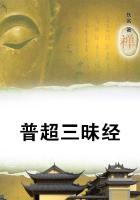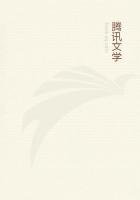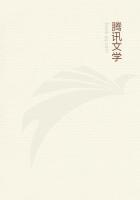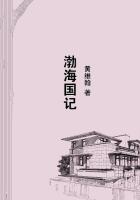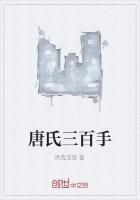"What do you make of that,Quatermain?"asked Sir Henry.
I shook my head,I could make nothing of it.
"I have it!"said Good;"the road no doubt ran right over the range and across the desert the other side,but the sand of the desert has covered it up,and above us it has been obliterated by some volcanic eruption of molten lava."This seemed a good suggestion;at any rate,we accepted it,and proceeded down the mountain.It was a very different business travelling along down hill on that magnificent pathway with full stomachs,to what it had been travelling up hill over the snow quite starved and almost frozen.
Indeed,had it not been for melancholy recollections of poor Ventv?gel's sad fate,and of that grim cave where he kept company with the old don,we should have been positively cheerful,notwithstanding the sense of unknown dangers before us.Every mile we walked the atmosphere grew softer and balmier,and the country before us shone with a yet more luminous beauty.
As for the road itself,I never saw such an engineering work,though Sir Henry said that the great road over the St.Gothard in Switzerland was very like it.
No difficulty had been too great for the Old World engineer who designed it.At one place we came to a great ravine three hundred feet broad and at least a hundred deep.This vast gulf was actually filled in,apparently with huge blocks of dressed stone,with arches pierced at the bottom for a water-way,over which the road went sublimely on.At another place it was cut in zigzags out of the side of a precipice five hundred feet deep,and in a third it tunnelled right through the base of an intervening ridge a space of thirty yards or more.
Here we noticed that the sides of the tunnel were covered with quaint sculptures,mostly of mailed figures driving in chariots.One,which was exceedingly beautiful,represented a whole battle scene with a convoy of captives being marched off in the distance.
"Well,"said Sir Henry,after inspecting this ancient work of art,"it is very well to call this Solomon's Road,but my humble opinion is that the Egyptians have been here before Solomon's people ever set a foot on it.If that isn't Egyptian handiwork,all I have to say is it is very like it."By midday we had advanced sufficiently far down the mountain to reach the region where wood was to be met with.First we came to scattered bushes which grew more and more frequent,till at last we found the road winding through a vast grove of silver-trees similar to those which are to be seen on the slopes of Table Mountain at Cape Town.I had never before met with them in all my wanderings,except at the Cape,and their appearance here astonished me greatly.
"Ah!"said Good,surveying these shining-leaved trees with evident enthusiasm,"here is lots of wood,let us stop and cook some dinner;Ihave about digested that raw meat."
Nobody objected to this,so,leaving the road,we made our way to a stream which was babbling away not far off,and soon had a goodly fire of dry boughs blazing.Cutting off some substantial hunks from the flesh of the inco which we had brought with us,we proceeded to toast them on the ends of sharp sticks,as one sees the Kaffirs do,and ate them with relish.After filling ourselves,we lit our pipes and gave ourselves up to enjoyment,which,compared to the hardships we had recently undergone,seemed almost heavenly.
The brook,of which the banks were clothed with dense masses of a gigantic species of maidenhair fern interspersed with feathery tufts of wild asparagus,babbled away merrily at our side,the soft air murmured through the leaves of the silver-trees,doves cooed around,and bright-winged birds flashed like living gems from bough to bough.It was like Paradise.
The magic of the place,combined with the overwhelming sense of dangers left behind and of the promised land reached at last,seemed to charm us into silence.Sir Henry and Umbopa sat conversing in,a mixture of broken English and Kitchen Zulu in a low voice,but earnestly enough,and I lay,with my eyes half shut,upon that fragrant bed of fern and watched-them.
Presently I missed Good,and looked to see what had become of him.As Idid so I observed him sitting by the bank of the stream,in which he had been bathing.He had nothing on but his flannel shirt,and,his natural habits of extreme neatness having reasserted themselves,was actively employed in making a most elaborate toilet.He had washed his gutta-percha collar,thoroughly shaken out his trousers,coat,and waistcoat,and was now folding them up neatly till he was ready to put them on,shaking his head sadly as he did so over the numerous rents and tears in them which had naturally resulted from our frightful journey.Then he took his boots,scrubbed them with a handful of fern,and finally rubbed them over with a piece of fat which he had carefully saved from the inco meat,till they looked,comparatively speaking,respectable.Having inspected them judiciously through his eye-glass,he put them on and began a fresh operation.From a little bag he carried he produced a pocket-comb in which was fixed a tiny looking-glass and in this surveyed himself.Apparently he was not satisfied,for he proceeded to do his hair with great care.Then came a pause while he again contemplated the effect;still it was not satisfactory.He felt his chin,on which was now the accumulated scrub of a ten days'beard."Surely,"thought I;"he is not going to try and shave."But so it was.Taking the piece of fat with which he had greased his boots,he washed it carefully in the stream.

